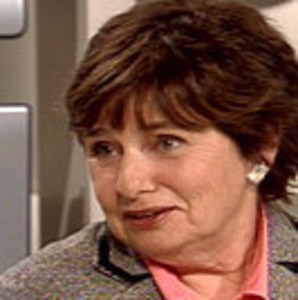An often-quoted Jesuit maxim boasts, "Give me a child until he is seven and I will give you the man."
Only seven? Amateurs! Since September all Quebec students from primary school entry to high school graduation, whether enrolled in public or non-funded private schools, must attend Quebec's new Ethics and Religious Culture course (ERC). And teachers, regardless of their beliefs, must teach it.
Jonathan Gagne, a courageous teenager at the Joseph-Hermas-Leclerc secondary school in Granby, Que., has just been suspended, and will likely be expelled, for boycotting ERC. He is a hero to thousands of angry, mainly Catholic, Quebecers who consider compulsory submission to ERC a violation of their human rights.
The ERC curricula are mandated to introduce students to Quebec's rich diversity of religious tenets and "facilitate the spiritual development of students so as to promote self-fulfilment." Since when does the state "facilitate" spiritual self-fulfilment? To parents who take religion seriously, this is a chilling intrusion into what all democratically inspired charters of rights designate as a parental realm of authority.
ERC was adopted by virtual fiat, its mission to instill "normative pluralism" in students. "Normative pluralism" is gussied-up moral relativism, the ideology asserting there is no absolute right or wrong and that there are as many "truths" as there are whims. There were no public consultations.
The program is predicated on the worst possible educational model for young children: the philosopher Hegel's "pedagogy of conflict." As one of the founders of the ECR course, put it, students "must learn to shake up a too-solid identity" and experience "divergence and dissonance" through "le questionnement."
ERC is to the grasp of authentic religion and spirituality as Esperanto to the comprehension of Spanish and English -- both are useless adornments, artificial rather than organic constructs. Worse, they may deflect forever the desire to acquire meaningful knowledge.
Reading ERC manuals and activity books, one finds a superficial mishmash of trendy theoretical platitudes whose cumulative effect will be to convince children that belief is fungible, and that all religions -- including pagan animism and cults -- are equally "true." The curriculum is strewn with politically correct material that openly subverts Judeo-Christian values. In many of the manuals, ideology and religion are conflated. Social engineering is revealed as the heart of the ECR program; in the most recently published activity book, for example, Christianity is given 12 pages, feminism gets 27 pages.
No religious leaders are solicited for their views in this text, but Francoise David, the radical-feminist leader of the Marxist party Quebec Solidaire is "interviewed." Beside a large picture of Mme. David, benignly smiling, face upwardly tilted in the old Sovietic mode, the question is posed: "What would you say to those adolescents who don't feel concerned about feminism?" David replies: "[Adolescents] need a feminist analysis in their life."
Paganism and cults are offered equal status with Christianity. Witches "are women like any other in daily life;" "Technologically [the Raelians] are 25,000 years in advance of us." And considering that of the 80,000 ethnic aboriginals in Quebec only 700 self-identify with aboriginal spirituality (the vast majority of ethnic aboriginals are Christian), aboriginal spirituality (falsely equated with environmentalism) is accorded hugely disproportionate space and reverence.
In this ERC monoculture, only similarities between religions are permitted, to further the jolly illusion that all religions are merely variations on a single theme of brotherly love.
Take for a subtle example ERC's gloss on the Golden Rule -- Christianity's "Do unto others as you would have them do unto you," Judaism's "Love thy neighbour as thyself " and Islam's "None of you is really a believer if he does not wish for his brother what he wishes for himself." All are posited in the ERC text as the same acknowledgement of the common humanity of all God's children.
But in fact, there is a deep interpretive chasm between Christianity's "others" and Judaism's "neighbour" -- both of which refer to all people -- and Islam's "brother," which refers only to fellow Muslims. Here is "divergence and dissonance" truly worthy of "le questionnement." But encouraging real critical thinking is precisely what the ERC course employs duplicity to avoid.
On the surface, the ERC curricula present an innocent, even uplifting multicultural picture. But their subliminal agenda is pernicious: to short-circuit authentic spiritual development by banalizing normative religions in order to bind children's loyalty to Quebec's state religion of left-wing, heritage-averse ideology.
Quebec is veering into creepy Orwellian political territory here. I wish Jonathan Gagne and his family the moral sustenance -- and the public support -- to peacefully resist the state's coercion to the bitter end. They should know that they are fighting not only for themselves, but for all Quebec citizens' freedom of conscience. Which is to say democracy itself, and nothing less.






















Laissez un commentaire Votre adresse courriel ne sera pas publiée.
Veuillez vous connecter afin de laisser un commentaire.
Aucun commentaire trouvé